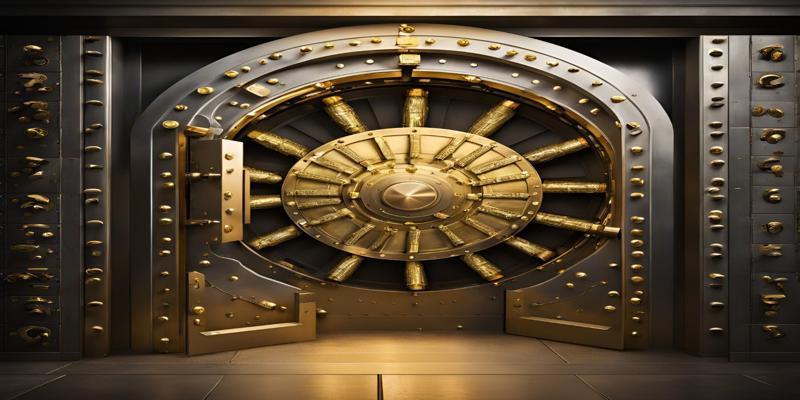Funding Home Improvements: Qualifying for an FHA Loan
Dec 10, 2023 By Susan Kelly
Getting home and keeping it up over time will consume much of your savings. If your home needs significant repairs, look into the many loan options available to help you pay for the costs. When this happens, homeowners have choices, such as the FHA Title 1 Home Improvement Loan. This loan, backed by the government, can give homeowners up to $25,000 to help pay for fixes or changes to their homes that they need badly. On the other hand, people who qualify for the loan may find its terms more appealing and easier to get than other kinds of credit.

What Is a Federal Housing Administration (FHA) Loan?An FHA-backed loan is a debt on a house backed by the federal government and given by a bank or other lender that the Federal Housing Administration (FHA) has approved. Even if a borrower's credit could be better, they may still be able to get an FHA loan because the minimum down payment is less than what it would be for a conventional loan. The Federal Housing Administration's (FHA) loan program is meant to help families with low to middle-wages access housing. They hit people who are getting their first home the hardest.How do FHA home improvement loans work?The Federal Housing Administration (FHA) helps homeowners get the money they need to make essential fixes and changes to their houses by guaranteeing loans. Customers can use these funds to buy a new home or improve a current one.You can get an FHA 203k loan with a low-interest rate that covers the property's price and the costs of fixing it up. This is the main advantage of choosing this type of funding. You could save a lot of time if you only have one mortgage payment, one loan application, and one set of closing costs.If it weren't possible to get a loan that covered both the mortgage and the repairs, some residents would have to get two loans: one for the mortgage to buy or sell a house and another for the repairs. Compared to other options, like the FHA home repair loan, it could cost more and take longer to finish.How do I qualify for an FHA home improvement loan?You must meet FHA program requirements before applying for an FHA home renovation loan. Example requirements:
- You have to show proof that you own your main house, and you have to have lived there as your main home for at least three months before asking for a loan.
- This loan does not have a minimum credit score requirement. However, your credit will be checked, and you must show proof of a steady income.
- People often spend less than 45 percent of their cash on paying their bills.
- You can only get loans from the federal government if you are behind on payments or have paid them back.
Types of FHA Loans:The Federal Housing Administration (FHA) has many different loan programs that allow people who might not be able to get a regular loan to get a mortgage still.Home Equity Conversion Mortgage (HECM):Homeowners over 62 who want to use the wealth in their homes can get a reverse mortgage, also called a Home wealth Conversion Mortgage (HECM). The homeowner can make a set number of monthly payments, use an open line of credit, or do both.

FHA 203(k) Improvement Loan:Through the Federal Housing Administration's 203(k) Improvement Loan program, borrowers can get money to pay for a part of the cost of making fixes and upgrades. This is an excellent chance for someone ready to put in some work and buy a home that needs fixing up.FHA Energy Efficient Mortgage:In a way similar to the Federal Housing Administration's 203(k) loan program for home improvements, the focus here is on making changes that are better for the environment and lower monthly energy costs. Some examples of these improvements are better insulation or using solar or wind power instead of fossil fuels.Section 245(a) Loan:(a) Section 245 Debtors who have reason to believe that their income will rise shortly are likely to benefit from loans. The monthly payments for a Graduated Payment Mortgage (GPM), another name for this type of loan, start small and go up slowly over the life of the loan. A Growing-Equity Mortgage (GEM) has a plan for the monthly capital payment to go up at times that have already been set. Both of these choices make it easier to pay back bills.Other loan options for home improvement:A loan guaranteed by the Federal Housing Administration (FHA) might be the best way to pay for a project for a borrower with a low credit score or a small down payment. Even if a buyer has little cash on hand, the FHA's open standards make it possible for them to make needed home changes. But it's crucial to remember that mortgage insurance premium (MIP) payments are required for all FHA loans. There are also loans for making changes to your home. Your monthly mortgage payment will go up as a direct result of this.If buyers don't have to pay MIP on an FHA-backed loan for home improvements, they may want to look into other choices. Here are some other ways to get the money you need to finish the renovations:
- Finances from the company itself
- The term "home equity line of credit" is what the word "HELOC" stands for.
- Refinancing that could lead to extra payments
- A loan made to help the person
- Credit cards can be used to borrow money.
Each possible source of financing has its own set of standards, such as a minimum credit score, interest rate, and loan terms, and each choice has pros and cons. Most of the time, the interest rates on second mortgages, also called home equity loans or home equity lines of credit (HELOC). However, the application process for these loans can take a lot longer. Your needs, goals, and the amount of money you want to spend on home changes can help a mortgage loan worker guide you through comparing your many financial choices.Homes That Qualify for an FHA Loan:Most of the time, the property being funded must be the borrower's main home, and the borrower must also own the property. The Federal Housing Administration does not lend money for homes rented out or used as businesses.The Federal Housing Administration offers loans that can be used to buy single-family homes that are separate or connected, as well as townhouses, rowhouses, and condos in FHA-approved apartment buildings.The home must also be appraised by an FHA-approved inspector and meet several standards. If the house doesn't meet the standards and the seller isn't ready to fix it, you'll have to pay for the changes yourself before the sale can go through. In this case, the money will be put in a trust account until the fixes are done.Conclusion:People who would have trouble getting a mortgage from a regular lender could get an FHA loan and become homeowners that way. Either their credit score is low, or they need more money for a down payment. If the government doesn't promise that the bank will get its money back, it might not be eligible for the program.On the other hand, people who can make a big down payment on their new home may be better off with a standard mortgage. If they stop paying their mortgage insurance, which most loans require, they may be able to get a loan with a cheaper interest rate.
On this page

FX in APAC: Key Insights and Implications for Regional Businesses

Explain in Detail: What Is a Financial Planner?

How do I get out of secured debt?

Business Automobile Policy

How To Present A Gift Of Shares Of Stock

Trading Options

How to Sell on Poshmark: A Complete Guide

Other benefits of CBDC that the central bank has taken into account

Can You Really Go to Jail for Debt

Virginia First Time Home Buyer

Making The Most Of Your HSA At Every Life Stage
